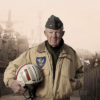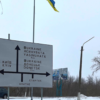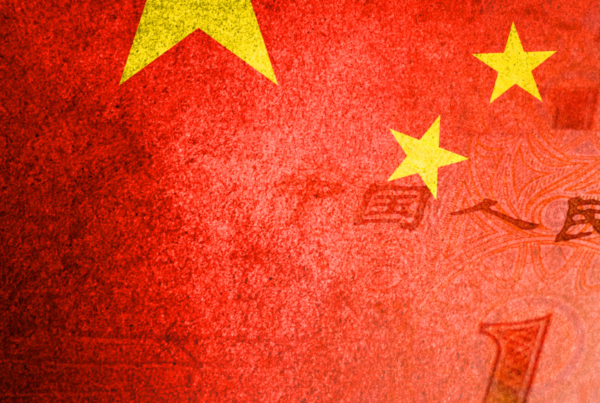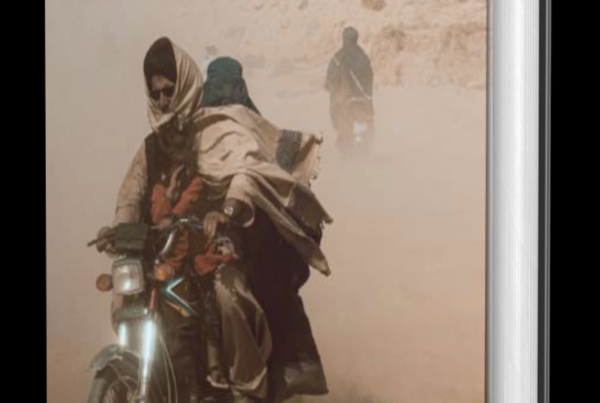BAHKMUT, Ukraine – The overhead whistle. The uncomfortable few seconds of waiting and silence. Then the crash: searing, reverberating, the smell of burning buildings and visions of someone else’s death.
This is what it is like to still live in the Eastern Ukraine city of Bakhmut, wedged into the Donbas oblast of Donetsk, 450 miles from the relative civilization of the capital Kyiv. There are no communication signals; there are no lights, no power, no heat to counter the freezing temperatures, and the first flutters of snow turning black on the mud-lathered pavements. There is nobody to collect the piles of trash mounting on burned and blistered street corners. Every structure has been fissured, ripped apart, wracked by destruction.
Somehow, civilians still exist here. Babies live in basements, sometimes coming up to the shattered surface in fits of fear, too shaken to cry. Families light small fires and live on frozen plastic-wrapped foods. Old people with their backs bent over walk their dogs through the park. Everyone seems oblivious to the relentless bombardment of rockets, mortars, and missiles until it is too late.
There is a slight sigh of relief at the shrill sounds of outgoing artillery, abruptly followed by the dread that the incoming will soon ensue. (Moreover, few will ever publicly discuss the high rates of friendly fire on both sides.) Nevertheless, the civilians left accept they will probably die here. Everyone talks of death the way they once spoke of birthdays and vacations.
“My friend died yesterday on the fronts,” a stranger says nonchalantly outside the boarded-up gas station.
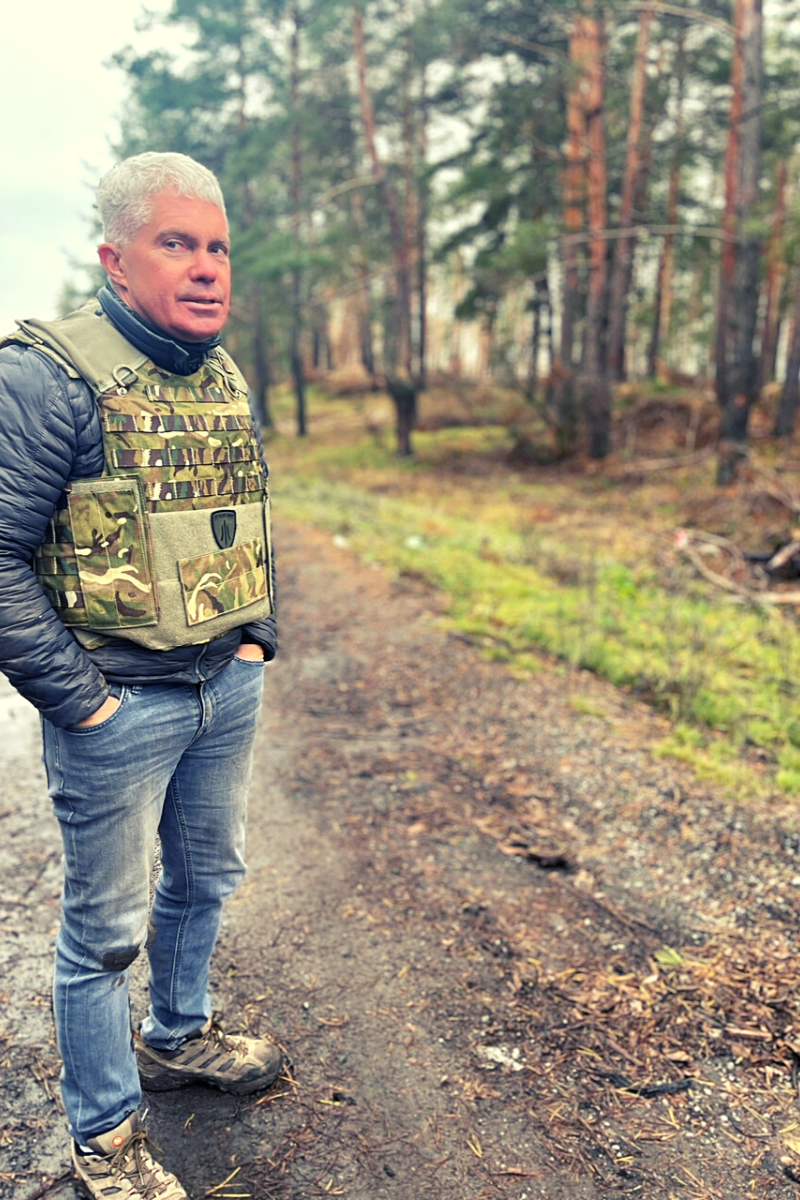
Still, it is a small band of western-led military veterans braving the onslaught day and in and out that is helping keep them alive, or at least allowing them to die with some semblance of dignity.
“It is just a shocking experience, months of being pounded by Russian artillery and airstrikes living in cellars. Many are shell-shocked into not wanting to leave. But some want to leave, and those who do, we are there to get them out,” retired U.S. Marine Colonel and former MARSOC Deputy Commander Andy Milburn tells me passionately. “And those who don’t, we bring them food and water, which will become increasingly acute as winter approaches. We drive into not just under Russian mortars, but sometimes direct fire to do that. That’s not me spouting that in terms of bravado. It’s saying we must look at what separates us from the other humanitarian groups doing nice things.”
Where is the U.N.? The dozens of other highly publicized, bloated bureaucracies of donor wealth? They are not here. It is too dangerous. Those who stay are discarded, disbanded, and seemingly left to their own devices.
Andy launched the aid organization The Mozart Group (TMG) in the spring shortly after Russia’s invasion, bringing together an assembly of his most trusted military colleagues and confidantes to tread, where no other volunteer outfit dares tread as the conflict drags on. The name, chosen in jest to oppose Russia’s notorious Private Military Company (PMC), The Wagner Group – reportedly named after Hitler’s favorite composer Robert Wagner – states its mission as building “sustainable capacity in the Ukrainian military and territorial defense units so that Ukraine can defend itself.” Yet, ironically, it is Wagner – arguably the most effective of Russia’s ailing military ensemble – that is focused on assaulting Bakhmut. They are so close on the city’s edges that exchanges of small arms fire routinely break out between the Ukrainians and the country they once considered their brothers.
While the Russian propaganda apparatus has relished depicting TMG as some armed unit of mercenaries, this is not the case. There are no guns, no grenades, not even armored vehicles. Instead, it is all about calmly going the extra mile where no one else is willing to go.
And from my lens, what I see from TMG is especially gut-wrenching work: welfare checks, dropping food supplies and diesel canisters to the forgotten, escorting those who finally decide to leave to safety, administering medical help to the gravely wounded, and offering a small window of conversation to those burrowed alone in their homes for weeks on end.
Then there is the wincing job of collecting the dead of those who succumbed to injuries or natural causes all alone. In the hot spot that is Bakhmut, there is no 911 equivalent to call for help. Civilians complain that local groups are willing to pick up the bodies, but at exorbitant costs. TMG does not charge. On one particularly violent Thursday afternoon, locals lament that there is a dead body – deceased for nine days – on the fourth floor of a blown-out building.
We approach the bloated corpse lying in a small puddle beside a bed, gray hair falling over what used to be an older man’s face. It has been hacked off in what strikes me as some violent altercation. Cats feast on what remains of the bloody and exposed raw flesh. The TMG team visits the police station, and an officer only speaks timidly through a flap in a heavy iron gate. He says he will tell his boss to make a report but refuses to go to the “shitty area.”
There is no time for homicide investigations when Russians are drawing close.
Night falls early, with the cloudy day turning black by mid-afternoon. No one wants to linger too long in the blackness, driving without headlights and wading through the river over the bombed-apart bridge, past the battered cars and through the thick, haunting fog.
The concept of Americans, or any westerners, heading off to the blood-spattered battlefields of Ukraine is controversial. Concerned over a labor shortage in the face of a much larger and more potent military force, Ukrainian President Volodymyr Zelensky, just days after the February 24 invasion, called upon experienced fighters to join the “International Legion of Territorial Defense of Ukraine.” Since then, many volunteers have died. Others have lamented the lack of appropriate weaponry. It is a web of a story for another time, but also a reminder that veterans can use their hard-earned skills other than looking down the barrel of a gun.
Born in Hong Kong to an American mother and raised in the United Kingdom, Andy – rejected by the British military after breaking his leg playing rugby – met a U.S. Marine recruiter by chance and went on to a storied career as a commander deployed with Special Operations to counter ISIS in Iraq before retirement. He started in Ukraine shortly after the invasion to try his hand at journalism, but quickly discovered a more urgent need to offer quick and efficient training and lifesaving aid.
“The recently occupied areas attract a lot of attention. But from a humanitarian perspective, the areas that remain in darkness and on the front line are our biggest concerns,” he explains.
Although TMG started as a volunteer outfit, operatives from around a dozen countries, from the United States, England and Australia to Israel, New Zealand, Ireland and beyond, receive a modest salary. Their Ukrainian cohorts are paid the same. Funded entirely by the goodwill of donors, some members are based in the line of fire in the East. Others are based in somewhat safer cities, such as Lviv and Odesa, to train Ukrainians on basic battlefield tactics to lifesaving medicine.
However, in the patches of the East, there is no word to describe the apocalyptic scenes other than hell. Civilians, military and humanitarian workers like TMG carry their lives on their fingernails – shuffling water, food, and a helping hand to a civilian, strapping a few surviving possessions to their car before making the death-defying speed out.
Still, why would anyone – especially those who have narrowly skirted death for their decades-long military careers – choose to leave their spouses and children, the comforts of well-earned western life, to live in shabby rooms under alcohol bans and an early curfew, without warmth and electricity under the persistent chorus of shelling and explosions to assist foreigners that likely will never see again?
“I realize I am miserable doing the kind of jobs that retired guys fall into, and this is something I find rewarding. The downside and sacrifice are, of course, time away from my kids. It is not a noble sacrifice. It is a sacrifice that is costing them,” notes 59-year-old Andy, who spent 31 years in the U.S. military and retired in 2019 as the Deputy Commander of Special Operations Command Central, the headquarters in charge of all U.S. Special Operations in the Middle East. “The aim is to strike a balance between being there for them enough and doing what I feel I need to do.”
Andy deployed to the trenches everywhere, from Mosul to Mogadishu, with Kabul in between. Yet it is the Ukraine battle for which he finally found a “justified” reason to run into the line of fire.
Martin Wetterauer, a 55-year-old Louisiana native, also retired as a Colonel in the U.S. Marine Corps late last year. His first day of boot camp also marked his 18th birthday.
“I knew I wanted to be a Marine while I was still in high school. I had an uncle that was a Marine in Vietnam, and I just had this patriotic pull. I enlisted and originally trained as an anti-armor guy. Then I ended up in the reserves and went to college, and I got my commission,” he tells me. “After college, I went back on active duty and did that for thirty-plus years.”
Less than four months after retirement, Martin set aside his plans to travel across his homeland with his wife in an R.V. and ended up back in a war zone as TMG’s COO in May.
“The night the war started, me and Andy (they were company commanders together more than two decades ago) were having dinner in D.C. together,” he recalls. “He came over here right after that and decided he wanted to do something different and started The Mozart Group. He’s like, hey, how fast can you get to Ukraine? At the time, I was about three days into a four-week R.V. trip with my wife and my grandson. We were at Disneyland down in Florida, and I said, I’ll be there soon as I can.”
Thankfully, Martin’s “re-deployment” comes with a critical blessing.
“My wife and I had been married for 32 years. I never went more than three or four weeks without being gone overnight, short a few days or deployments for months. Then my final job in the military ended up at the Pentagon. And then COVID hit. So, we spent two years together. We joked a lot about when I get my next job; there needs to be some travel involved,” he continues with a smile. “But she understands what I’m doing here. She understands the mission; she believes in this cause and the wrong happening here in Ukraine.”
And it is a mission Martin, too, cannot turn away from.
“It was very easy to see the wrong being done in Ukraine by Putin more than the Russians. I knew from experience that these guys were going to need training, that Ukraine’s best soldiers had been on the front in the beginning. And a lot of those guys are dead now. So, they were going to have a huge gap of skilled, experienced guys that can continue to carry on the training,” he explains. “That’s what got me here.”
The other part of the question is, why is he still here? Why are they all still here?
“I think it’s because the resolve of the Ukrainian people is like nothing I’ve ever seen anywhere else,” Martin surmises. “I’ve not met one person that thinks that this war is that they’ll lose this war in any way, shape or form they know they’re willing to expend a lot of capital in their lives to win.”
Nevertheless, he worries about what that win will look like and what will be sacrificed as rough winter sets in. Whatever can be done – big or small – matters.
“We know we’re not changing the strategic footprint of this war. We know that, but what we’re doing is we are saving lives. We’re doing this because we want to help the soldier,” Martin asserts. “When I’m training these guys, I’m usually the oldest in our group; the soldiers are much younger. I always tell them that my goal is to get them to be like me, a guy with gray in his beard and a grandkid at home, and he can tell stories about being in the war. So that is part of why we do this.”
Then there is Wade Priddy from Chattanooga, Tennessee, who enrolled in the U.S. Marine Corps Officer Candidate School in 1990, inspired by a handful of recruiting commercials and later the Tom Cruise/Jack Nicholson-starring drama “A Few Good Men.” He divides his career into two distinct eras – pre- and post-the attacks of September 11.
“Pre 911 was pretty traditional artillery, but more like support and (training) assignments. I tell people almost all the jobs I had after 911 didn’t exist. My post-911 time was an advisor working with the Iraqi military, training advisors, things like that,” Wade says.
After getting out in 2012, he went to Afghanistan in a contracting capacity and vacillated between contract work and leadership consulting, mainly in the oil and gas arena. In 2020, Wade started working on a project to teach Ukraine’s National Guard how to train more effectively, more systematically. After the COVID-19 pandemic halted the mission for many months, Wade returned last year and was slated to return early this year.
That was until murmurs of an invasion gained momentum, and the U.S. State Department determined that “no one needs to go to Ukraine right now.”
Nevertheless, Wade is now TMG’s Chief People Officer, tasked with filtering through the hundreds of daily requests to find the right fit for the close-knit team of operatives and developing training plans and objectives.
What keeps him motivated to stay?
“As we say, what we’re doing is probably not going to change the strategic outcome. We are not moving the needle in large increments. But some fathers would love to see their children grow up, be grandfathers, so that is part we play,” Wade responds without a breath of hesitation.
Furthermore, Jim Lechner, a 27-year veteran of the U.S. Army-turned TMG trainer from South Carolina – who has served everywhere from Afghanistan, Somalia and Bosnia to Syria and Israel – stresses that something in Ukraine struck a profound chord. He started work in Ukraine as a freelance journalist in April, before putting his long-perfected skills to beneficial use in October.
“Whatever the requirement they (Ukrainian military) tell us they need, we (try to help), whether it is teaching basic infantry tactics to communications. Most often, it centers on medical training, so everything from First Aid to more advanced aid, we have a strong team for that,” Jim underscores. “And there is mine clearance, and we also have experts to train on that. I stay here because I think it’s a worthy cause. And I can put my skills and experience to use in that cause. The stark facts are that it is a Marxist, communist government invading a democracy. And so, I feel strongly about that.”
And Brendan Beary, 27, had to obtain special permission from the New Zealand Defense Force (NZDF) to fully exit his Army duties to relocate to the war theater in Ukraine in late April. After signing up for the infantry after high school, Brendan – born in South Africa and raised partly in Ireland – felt strong ties to the conflict in a fellow European country. For him, it signaled a clear-cut case of “good versus evil” and standing against a nation blatantly invading a sovereign neighbor.
“I made the call to come over and help in whatever way I could, but it was a bit of an adventure,” Brendan admits.
His venture began under the guise of some “chaotic” medical charities, before his uncle, a former soldier, alerted him to TMG. He sent an email to Wade on ANZAC Day, April 26, and soon came aboard to assist the training and evacuation teams.
“This is very different from holding a weapon in your hand. But it is an experience most soldiers won’t ever get to do. Frankly, these missions under Russian artillery would not be allowed,” Brendan observes. “We mitigate the risks as much as possible, but there is only one route in and one out. Those people don’t get evacuated if we don’t go in.”
However, as the fight for Bakhmut hammers on, the disturbing reality is that it is not a sure win for the battle-tested, wounded, and weary Ukrainian forces – a significant portion of whom have been fighting in the region since the war with pro-Russian separatists flared in early 2014.
Pro-Russian sentiment has and still exists. I see just one small convenience store operating in the ravaged Bakhmut. It was shelled a few days earlier and almost immediately opened again in a scorched and defiant state.
“We speak Russian; we are Russian,” the angry owner insists, erroneously elaborating that Ukrainians shelled them, seemingly unaware of the frontlines and direction of the incoming and outgoing.
Further, I observe Ukrainian military positions directly outside humanitarian aid centers, which concerns me, as it makes these civilian-protected spots hot-button targets for Russian artillery. And then there is the notion that the story is far from over, despite the incredible strength of Ukrainian forces – who have propelled what was widely viewed as a much more potent force. We see and read in the press often awe-inspiring tales of triumph, but Russia is gaining ground in Bakhmut. Capturing the city could mean a straight shoot to the strategic Donetsk hubs of Kramatorsk and Sloviansk.
On a cold and quiet afternoon, I meet with one of my longtime sources, a high-ranking government official, who is not authorized to speak on the record.
“Our morale is our main weapon,” he says earnestly.
It is powerful. But he knows, I know, it is not enough.
“But we need Abraham tanks. The U.S. has 350 of them, and we need just a portion,” the official presses on. “After that, long-range missiles.”
No matter what happens, he pledges, Ukraine will not surrender an inch of Donbas terrain to the Russians. The United States has already issued Ukrainians billions upon billions in heavy weaponry. Nevertheless, critics contend the response has been tempered by the fear of spiraling the war to nuclear proportions.
The long journey in the freezing gentle rain back to Kyiv from the East is filled with swerves around what passes for broken wet roads, burned USSR-era armored personnel carriers, and interrupted reflections on what it means to stay, to flee, or to risk everything for a country that might not be yours, yet is symbolic of something much bigger, much more profound.
“People always say thank you for defending our freedom. But honestly, I never really defended the freedom of the United States by invading Iraq,” Andy points out. “What I am doing now has a sense of purpose and a sense of camaraderie. Those are the two things that pulled us into the military, but this is without the guilt that we have just invaded a country and need to make good on what we have done. And that is always a kind of catch-up game.”
It is likely that the most meaningful work is still to come.
“This is going to be a long, drawn-out war,” Andy adds solemnly. “And it could take a black swan event to break it.”




